Bhargav Joshi
Electron Energy Regression in the CMS High-Granularity Calorimeter Prototype
Sep 12, 2023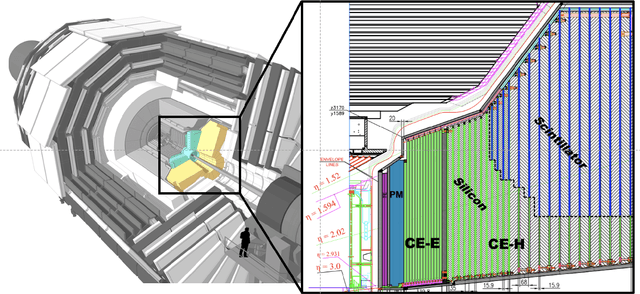

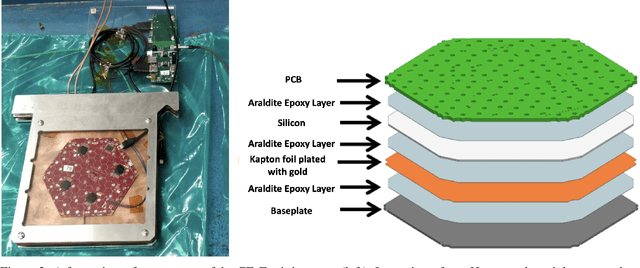
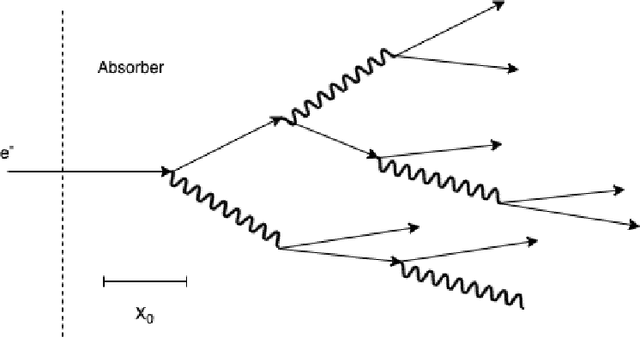
Abstract:We present a new publicly available dataset that contains simulated data of a novel calorimeter to be installed at the CERN Large Hadron Collider. This detector will have more than six-million channels with each channel capable of position, ionisation and precision time measurement. Reconstructing these events in an efficient way poses an immense challenge which is being addressed with the latest machine learning techniques. As part of this development a large prototype with 12,000 channels was built and a beam of high-energy electrons incident on it. Using machine learning methods we have reconstructed the energy of incident electrons from the energies of three-dimensional hits, which is known to some precision. By releasing this data publicly we hope to encourage experts in the application of machine learning to develop efficient and accurate image reconstruction of these electrons.
Predicting the Future of the CMS Detector: Crystal Radiation Damage and Machine Learning at the LHC
Mar 23, 2023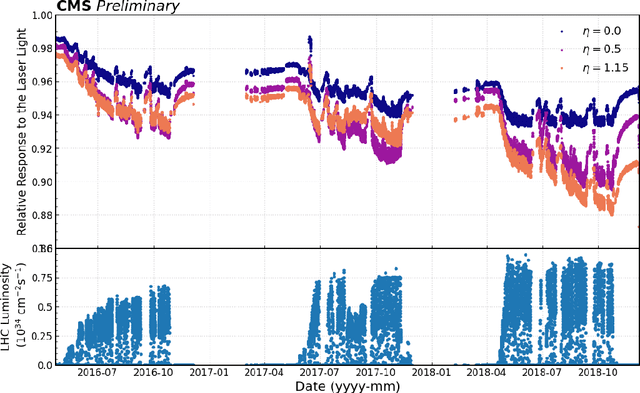

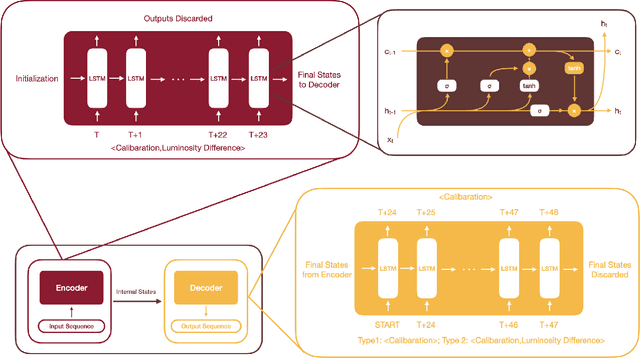

Abstract:The 75,848 lead tungstate crystals in CMS experiment at the CERN Large Hadron Collider are used to measure the energy of electrons and photons produced in the proton-proton collisions. The optical transparency of the crystals degrades slowly with radiation dose due to the beam-beam collisions. The transparency of each crystal is monitored with a laser monitoring system that tracks changes in the optical properties of the crystals due to radiation from the collision products. Predicting the optical transparency of the crystals, both in the short-term and in the long-term, is a critical task for the CMS experiment. We describe here the public data release, following FAIR principles, of the crystal monitoring data collected by the CMS Collaboration between 2016 and 2018. Besides describing the dataset and its access, the problems that can be addressed with it are described, as well as an example solution based on a Long Short-Term Memory neural network developed to predict future behavior of the crystals.
 Add to Chrome
Add to Chrome Add to Firefox
Add to Firefox Add to Edge
Add to Edge